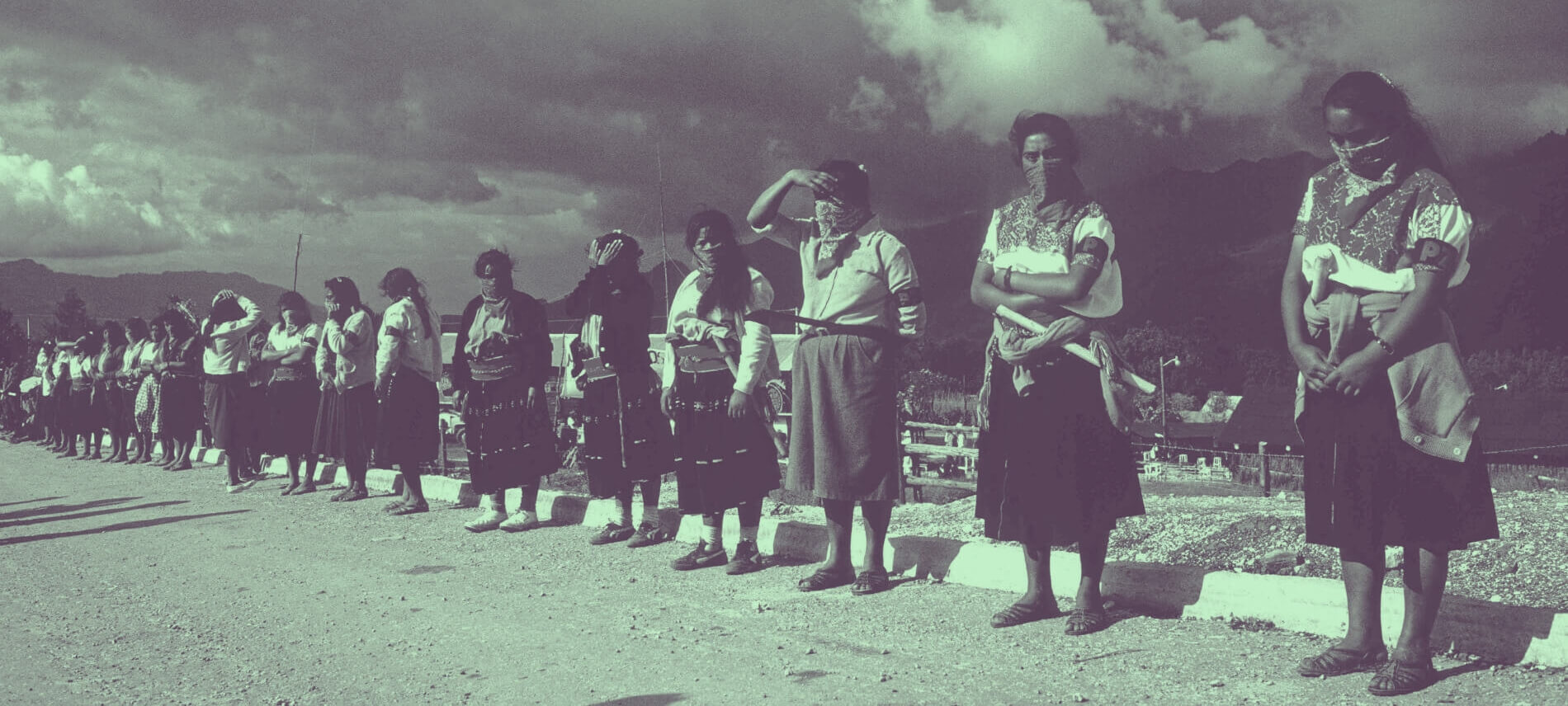
The Indigenous Rights Report is a weekly crash course on everything in the indigenous world.
Make this podcast happen! Support us on Patreon!

This is the Indigenous Rights Report for the week of September 14, 2019. In this week’s report:
- Most isolated tribe in continental U.S. gets broadband
- Minnesota Supreme Court denies justice to the Anishinaabe peoples
- Court of appeal tells B.C. to reconsider Trans Mountain environmental conditions
- Cherán community builds Latin America’s largest rainwater collector
- Federal Court blocks South Dakota laws suppressing pipeline protests
- Cree Nation Government enacts ‘historic’ Cree Language Bill
- Kenya islanders demand say in foreign-backed projects
- Tribes hold Trump feet to fire on tar-sands pipeline permit
- A community aquaculture project is helping the Wayana avoid ingesting contaminated fish
- Efforts underway in Kenya to preserve disappearing Indigenous dialects
- Amazon ‘forest guardians’ stalk illegal loggers
- Del Monte accused of links to violence against Indigenous peoples in Philippines
- India authorities approve uranium exploration in Nallamala Forest, sparking protests
- Wisconsin legislators introduce bill to stop exploitation of Indigenous women
- Amazon’s Chief Raoni nominated for Nobel Peace Prize
- Report finds Amazon deforestation is driven by criminal network
- Oregon schools slowly rolling out Indigenous studies curriculum
- Indigenous communities descend on London to discuss urgent environmental action
- Water wars: Indigenous locals go up against Mexico City airport
- Cherokee Indians can now harvest sochan within a National Park
The Havasupai tribe in the Supai Village of the Grand Canyon finally has good access to the internet. Havasupai Councilwoman Ophelia Watahomigie-Corliss has been trying to get the tribe more reliable high-speed Internet for a host of reasons. Among them: teens could take high school courses online instead of being sent away to boarding schools; community members could train to do jobs the tribe outsources; the Havasupai could have better emergency communication during one of the region’s many flash floods; and they could have better access to health care.
The Federal Communications Commission (FCC) granted the tribe a permanent broadband license last spring. The FCC estimates at least a third of people living on tribal lands don’t have access to high-speed Internet. So the agency is giving tribes first dibs on applying for available broadband spectrum — ahead of commercial companies — at the beginning of 2020. But the problem is twofold: the window to apply is short; and the FCC would require the tribes to build their infrastructure — the towers and antennas — in half the time required of major telecom companies.
The Minnesota Supreme Court denied justice to the Anishinaabe peoples, declining to review an appalling decision by the Court of Appeals. On June 3, the Appeals Court decided to require an assessment of the potential of oil spill impacts on Lake Superior; however, the court said that there was no need to conduct a tribal cultural impact study on the proposed Enbridge Line 3 pipeline which would stretch across 41 wild rice watersheds. The decision allows state agencies to forgo on-the-ground surveys before permitting construction projects that may destroy native cultural properties. Honor the Earth, the Red Lake, White Earth and Mille Lacs Band of Ojibwe, and the Environmental Law and Policy Center each petitioned the Supreme Court to review the Court of Appeal’s disregard for native rights. “I’m profoundly saddened that the Court believes that the rights of a Canadian multinational corporation should override the Anishinaabe peoples and the waters of this land,” Winona LaDuke of Honor the Earth stated.
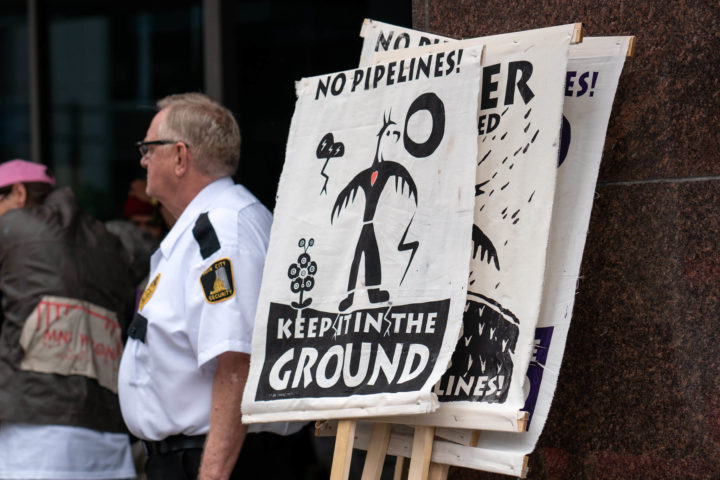
No Pipelines, Keep It In The Ground signs outside the MN Public Utilities Commission hearing on Enbridge’s Line 3 in downtown St Paul, MN. Photo: Lorie Shaull (CC)
The Enbridge Line 3 project remains stalled in the Courts, as the Appeals Court did rule on June 3, that the state Environmental Impact Statement had failed to address the potential impact of a spill on Gichi Gummi, Lake Superior.
The B.C. Court of Appeal has instructed the province to reconsider its environmental assessment certificate and conditions issued for the Trans Mountain pipeline expansion project. In their challenges, the Squamish Nation and the City of Vancouver argued the certificate should be quashed because it was based on a flawed report and approval from the National Energy Board that was later quashed by the Federal Court of Appeal. A spokesperson for the City of Vancouver wrote: “The City remains of the view that the Trans Mountain Pipeline project would have significant environmental impacts, including the unacceptable risk of oil spills and increased greenhouse gas emissions related to the project at a time when the world needs to reduce emissions.”
The B.C. Court of Appeal did not opt to quash the provincial certificate and instead said it’s “remitting” it back to the province to reconsider, “in light of the changes in the National Energy Board’s report.”
The Indigenous municipality of Cherán is the largest rainwater collector in Latin America. Located on the hill of Kukundicata, the rainwater collector started to be built in 2015 and began to run in 2016. Since then, it has brought important benefits for the 16,207 inhabitants of the Indigenous municipality, including awater reserve of approximately four months in case of an emergency, and the supply of the treatment plant that has reduced the cost of a jug by up to 87 percent.
The rain collector, with a capacity of up to 20 million liters of water, was consolidated with the economic support of the municipality and funding was obtained from a civil association.
A federal court this week blocked enforcement of the unconstitutional provisions of several South Dakota laws, including the recently-enacted “Riot Boosting” Act, that threaten activists who encourage or organize protests, particularly protests of the Keystone XL pipeline, with fines, civil liabilities, and/or criminal penalties of up to 25 years in prison. The lawsuit was filed by the American Civil Liberties Union and ACLU of South Dakota on behalf of four organizations: the Sierra Club, NDN Collective, Dakota Rural Action, and the Indigenous Environmental Network; and two individuals: Nick Tilsen with NDN Collective, and Dallas Goldtooth with Indigenous Environmental Network.
South Dakota’s “Riot Boosting” Act joins a recently growing number of government efforts to stifle protests, particularly those led by Indigenous and environmental activists, often in opposition to pipelines.
The Cree Nation Government unanimously passed its first Bill – An Act respecting the Cree language of Eeyou Istchee. The objectives of the Act are to support and promote the use of the Cree language, to support Cree efforts to reclaim, revitalize, maintain and strengthen the Cree language, and to plan initiatives and activities for restoring and maintaining fluency in the Cree language.
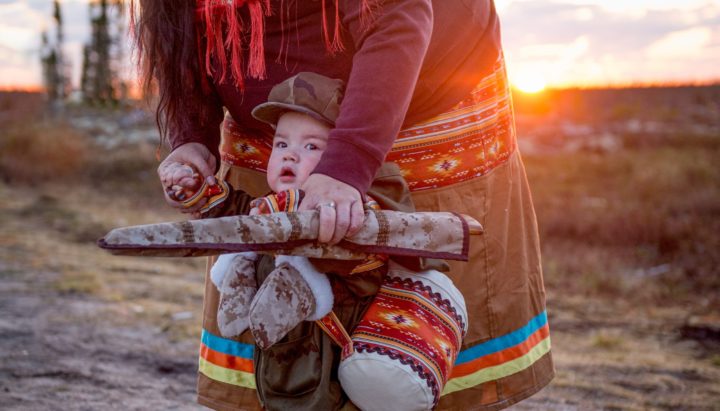
Photo: Cree Nation Government
This historic enactment comes during 2019, which has been proclaimed by the General Assembly of the United Nations as the International Year of Indigenous Languages.
The inhabitants of the Lamu island – the oldest Swahili settlement in East Africa – are engaged in a legal battle to stop a foreign-backed coal power plant that they fear could harm the area’s cultural and environmental heritage. Kenya’s government in 2016 granted a licence to Amu Power – a consortium involving Kenya’s Gulf Energy and Centum Investment, some Chinese companies as well as U.S. and Omani backers – to build the plant as demand for electricity soared.
Like many African countries, Kenya has courted foreign companies to invest in transport and energy projects, with China funding a quarter of infrastructure development in East Africa in 2018, according to international accounting group Deloitte. But residents are increasingly demanding more of a say on development projects and how they could impact the lives of local residents.
Counsel for the Rosebud Sioux Tribe and the Ft. Belknap Indian Community held U.S. President Donald Trump’s feet to the fire in a federal court case on September 12, as the chief executive’s defense argued to dismiss the native nations’ lawsuit against him for permitting the TC (TransCanada) Energy Corp.’s Keystone XL Pipeline.
The Canadian pipeline company is bound and determined to carry on its $10-billion attempt to build the pipeline across the U.S.-Canada border through unceded 1851 and 1868 Ft. Laramie Treaty territory in Montana, South Dakota, and Nebraska.
A community aquaculture project is helping the Wayana peoples in Suriname avoid ingesting contaminated fish which poses a serious health risk as it contains high levels of mercury from illegal gold mines that are operating in the river that runs along the villages. The Wayana themselves are not involved in gold mining; most of the miners originate from the capital city of Paramaribo and Brazil. The Wayana, through the Mulokot Foundation, are standing up to assist their communities through a sustainable small-scale fish farming. The project will focus on training selected youth to farm and market fish, to improve local understanding of the dangers of mercury contamination. The community is planning to farm fish in a cooperative fashion, using sustainable protocols that will ensure environmental integrity and social responsibility for all community members. Once the project has proved it can be a success in this community, it will have enormous potential as a blueprint for sustainable development and livelihood provision across different Indigenous communities in the Amazon region.
Research shows that gold mining in this small South American country grew by 893 percent between 2000 and 2014 and that over 50 percent of investigated Indigenous communities in Suriname are exceeding WHO safety thresholds in mercury levels in their blood samples, with children especially at risk of developing irreversible brain damage.
Kenyan civil society groups met in Nairobi to discuss a proposed bill to help preserve and safeguard at least 13 disappearing languages in Kenya. Civil society groups and the Kenyan Ministry of Sports, Culture and the Arts have drafted a bill to document and promote Indigenous languages in Kenya. Kimani Njogu, a linguist who also is a member of the Academy of African Languages, says “Because of globalization and urbanization, and because we do not have very systematic transfer of languages across generations, we have older people not transferring their language to younger people as well as systems of education where certain languages dominate the systems of education, so quite a number of languages are endangered.”
In Africa, hundreds of Indigenous languages are on the verge of extinction, according to the U.N. culture organization UNESCO.
A growing number of groups are rising up to physically stop loggers and ranchers from clearing rainforest. Among them are the “forest guardians” in the Arariboia Indigenous Territory, a 1,600-square-mile stretch of rainforest in the northeastern Brazilian state of Maranhao. Since 2012, when the ‘forest guardians’ formed, illegal incursions have fallen by as much as 50 percent–an important accomplishment given that over 2,400 square miles of the Brazilian Amazon has already been cleared over the past 9 months–an area larger than the U.S. state of Delaware.
“I’m proud of the warriors who are continuing the fight, because the Arariboia Indigenous Territory was considered lost,” says Laercio Guajajara, one of the group’s coordinators. “But we’re showing the world, the country, that our land isn’t lost, that it has an owner.”
Global fruit producer Del Monte has been accused of having links to the perpetrators of violence against Indigenous activists in the Philippines as attacks against land and environmental defenders escalate. A scathing report from Global Witness uncovered connections between Del Monte Philippines and the local rancher and current Mayor Pablo Lorenzo III of Quezon, Bukidnon, who activists suspect of ordering attacks on them. The group warned that Del Monte failed to identify historic land conflicts and maintained an agreement with Mr. Lorenzo despite violent attacks against Indigenous peoples on his ranch, including the 2017 murder of Renato Anglao, the general secretary of the Tribal Indigenous Oppressed Group Association (TINDOGA).
An in-principle approval given by the central government of India to start exploratory mining in the Nallamala forest, including part of a nature reserve, has sparked community protests and resistance from the state government. Approval was given a few months back to let Uranium Corporation of India Limited (UCIL) begin exploration for uranium in the ecologically sensitive region which stretches across the states of Andhra Pradesh and Telangana. Although the Telangana government initially agreed with the central government’s decision, opposition from environmentalists, concerned citizens, and Chenchu Indigenous peoples led state authorities to change their stance. However, to the chagrin of environmentalists and Indigenous communities living in the region, exploration has continued as authorities in these matters fall under the central government’s purview.
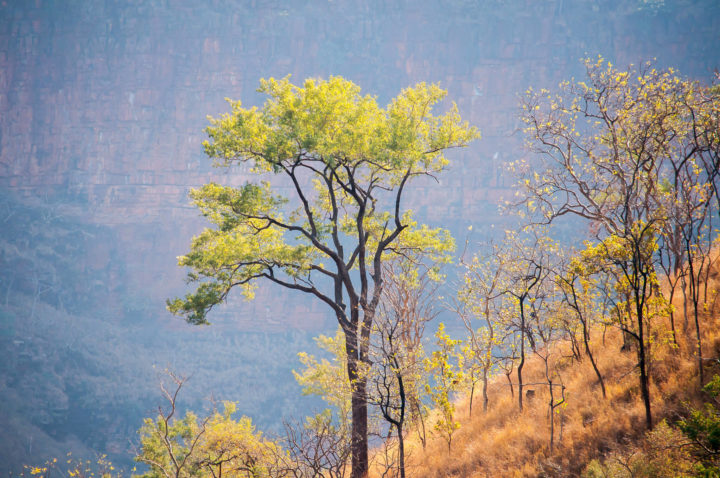
Nallamala Forest. Image from Flickr by Subash BGK. CC BY-NC-ND 2.0
India has plans to increase its uranium production tenfold over the next 15 years. If UCIL discovers significant uranium deposits, the Telegana state authorities may be very tempted to change their stance and allow for further environmental exploitation.
Local legislators in Wisconsin introduced a bill that would create a statewide intergovernmental task force to address the problem of missing and murdered Indigenous women. Indigenous peoples define the issue of missing and murdered Indigenous women as an epidemic level of violence, according to the Wisconsin Coalition Against Sexual Assault. The organization states that Indigenous women are subjected to higher levels of violence, including trafficking, sexual assault, domestic abuse and homicide, than virtually any other group in the United States, and perpetrators of the violence are usually non-native.
The legislation introduced would bring together tribal and state government leaders, survivors, advocates and law enforcement to examine the problem of missing and murdered Indigenous women and require that group to submit a report with recommendations to the state legislature and tribal governments.
Chief Raoni Metuktire, who has been campaigning for environmental causes for decades, most recently for the fires raging in the Amazon rainforest, is now being recognized for his efforts as a candidate for the 2020 Nobel Peace Prize. A group of Brazilian anthropologists and environmentalists nominated Chief Raoni, 89, of the Kayapó tribe. The Darcy Ribeiro Foundation (named after one of Brazil’s first anthropologists) formally proposed his name to the Norwegian Nobel Committee, which decides who wins the annual award.
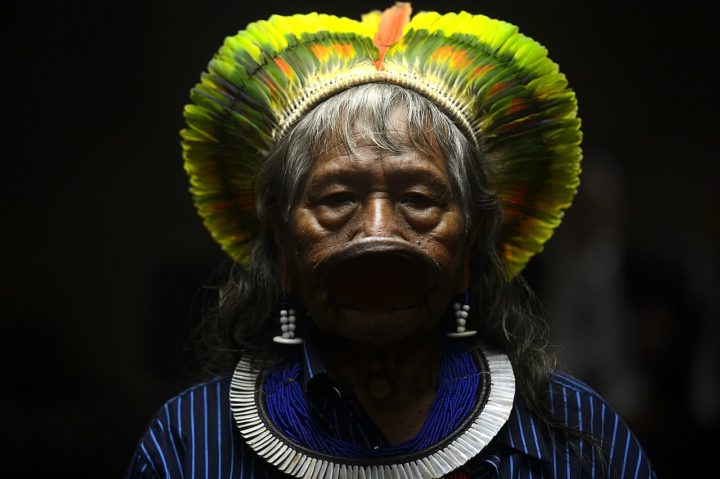
Raoni Metuktire. Photo: Agência Brasil Fotografias
The nomination deadline is February 1, 2020, and winners are announced in October. If he wins he’ll be the seventh individual to win a Nobel Peace Prize from Latin America and the first from Brazil.
Deforestation in the Brazilian Amazon is a lucrative business largely driven by criminal networks that threaten and attack government officials, forest defenders and Indigenous peoples who try to stop them, according to a new report by Human Rights Watch. Rainforest Mafias concludes that Brazil’s failure to police these gangs threatens its abilities to meet its commitments under the Paris Climate Agreement– such as eliminating illegal deforestation by 2030. The report documents 28 killings in which it found evidence that “those responsible were engaged in illegal deforestation and saw their victims as obstacles”. Victims included Indigenous peoples, forest residents and environmental agents, and only two cases went to trial.
The report was published a week before the UN Climate Action Summit.
Oregon schools are now required to teach tribal history and the Native American experience in class. The curriculum will roll out as 45 lessons for fourth, eighth and tenth grade classrooms, with plans to add more grades in the future. The lessons will be taught in five subject areas — from English and social studies to math and science. “It’s really focusing on Indigenous ways of knowing, thinking and doing,” said April Campbell, the Indian education adviser to Oregon’s deputy superintendent of public instruction.
This is the first time the Oregon Department of Education has been responsible for creating curriculum. Signed in 2017, Senate Bill 13 requires this curriculum, called “Tribal History/Shared History,” which is part of the state’s strategy to implement “historically accurate, culturally embedded, place-based, contemporary, and developmentally appropriate” American Indian and Alaska Native curriculum.
Indigenous communities from around the world met in London to call for urgent action on the climate crisis. The Flourishing Diversity Series (FDS) took place in order to promote the vital role that Indigenous communities have in tackling environmental damage and to give them a platform on which to express their experiences. Accompanying the FDS is the launch of a new report, Flourishing Diversity: Learning from Indigenous Wisdom Traditions, which explores in depth the issues faced by Indigenous communities and how they have dealt with them.
Currently, the territories under the governance or management of Indigenous groups represent as much as 65% of the Earth’s land area and host 80% of global biodiversity.
The centuries-old indigenous town of San Lucas Xolox is worried that the 36km2 development of the Mexico City’s new international airport is going to suck up their rapidly dwindling resources, especially water from an aquifer that is already heavily depleted. Set to be built on a military airbase called Santa Lucia, just a 15-minute drive from San Lucas Xolox, the project is being spearheaded by Mexican President Andres Manuel Lopez Obrador. Critics say that the nationwide vote, which polled just 1% of the electorate, did not consider the views of Indigenous groups who will be most impacted.
In August, a state judge overruled Mexico’s environment ministry’s approval for the airport after a collective of civil society organizations, law firms and citizens called #NoMasDerroches (No More Waste), filed an injunction request. The ruling has effectively put a halt to the airport construction until the injunction is resolved.
For the first time, the Indigenous community of the Cherokee Indians is allowed to harvest sochan within a National Park. Because of a new federal policy, 11 tribal members, as of now, are free to forage for sochan (a traditional Cherokee food akin to but milder than spinach that is rich in vitamin C and folic acid) in tens of thousands of acres inside the Great Smoky Mountains National Park. The lifting on the prohibition of such foraging marks a reconciliation of sorts, with the federal government finally acknowledging American Indians’ claim to their ancestral homeland.
For millennia, Cherokee inhabited vast portions of the Southeast, including the more than 500,000 acres of Tennessee and North Carolina that now form the national park. In 1830, the Indian Removal Act led to the forced eviction of tribes. Today, many of their descendants live in the Qualla Boundary, tribe-purchased land that shares a border with the park.
This is the Indigenous Rights Report.

Indigenous Peoples are putting their bodies on the line and it's our responsibility to make sure you know why. That takes time, expertise and resources - and we're up against a constant tide of misinformation and distorted coverage. By supporting IC you're empowering the kind of journalism we need, at the moment we need it most.